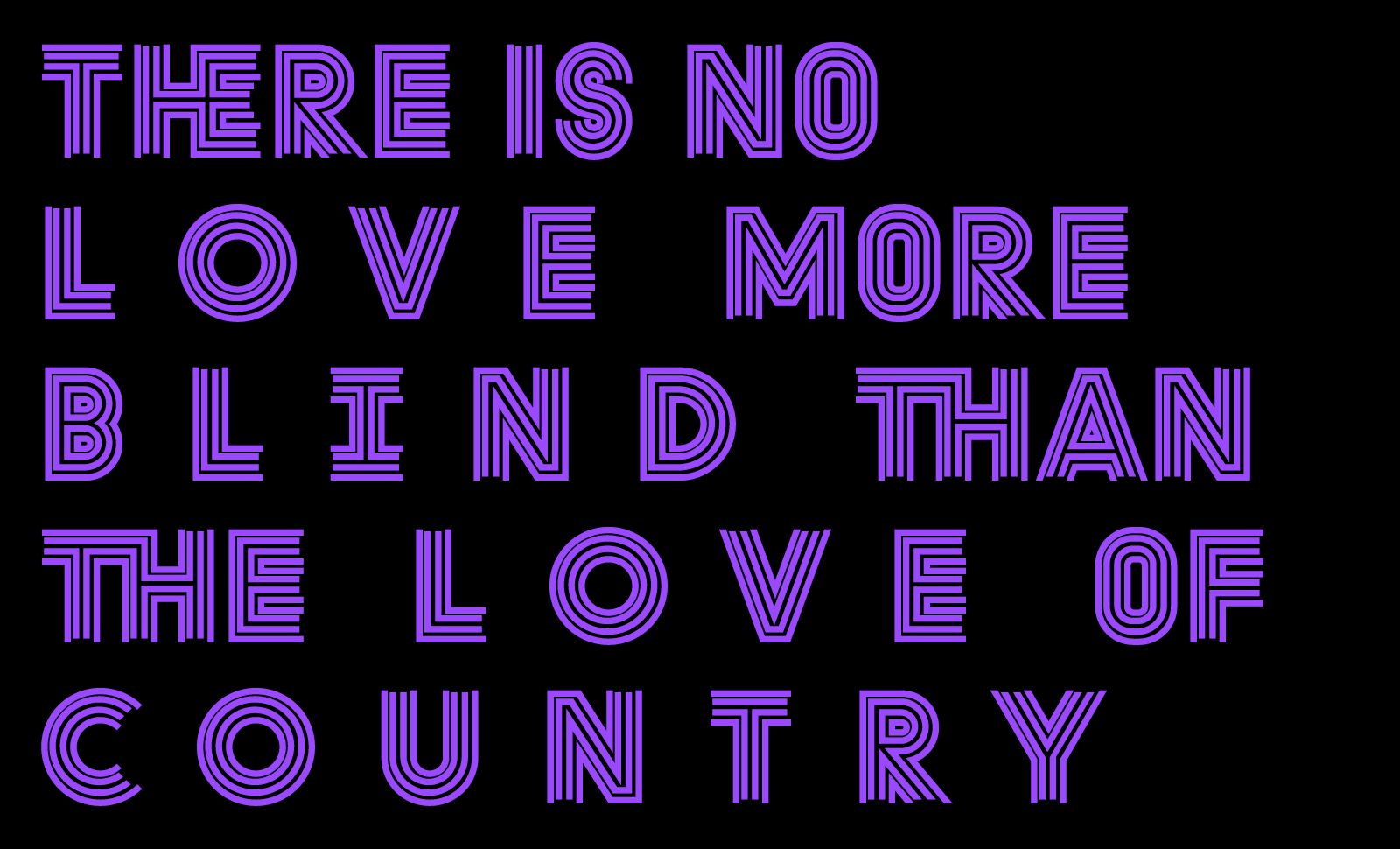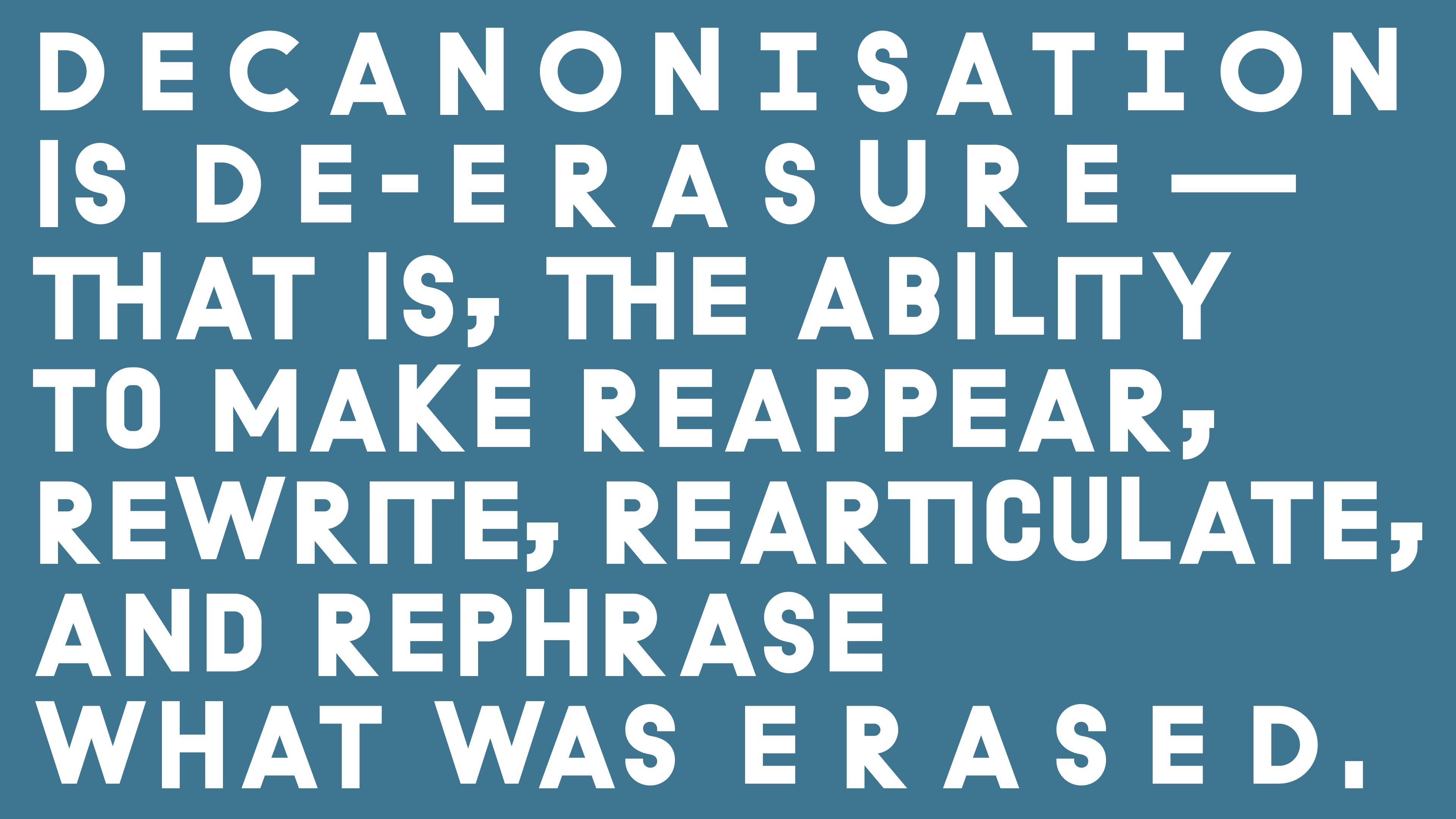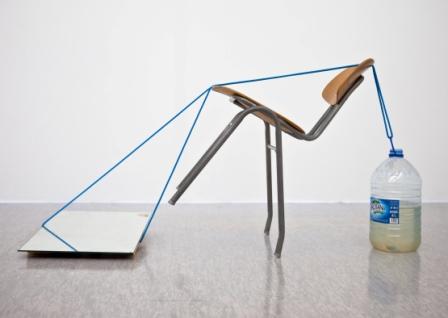Today, I Broke your Solar System.
On Partition and Partitura
Long Night of Ideas 06.06.2019 15:00–24:00
With Sara Abbas, Ashish Avikunthak, Madhuri Chattopadhyay & Ashraf Sharif Khan & Indranil Mallick, Rosalyn D'Mello, Ebow, Chantal Edie, Meenu Gaur, Daud Haider, Ahmed Isamaldin, Sarathy Korwar, Reem Shawkat, Salma Siddique, Ananya Jahanara Kabir, Hanan Toukan, Hervé Yamguen, Sinthujan Varatharajah, Arkadi Zaides, Mazhar Zaidi, and many others
Language English
Venue Kuppelhalle at silent green Kulturquartier, Gerichtstraße 35, 13347 Berlin
Schedule
| 15:00 | Welcome & Introduction |
15:15 | Meenu Gaur Manifesto for the Dead & The Ghost Will Leave If You Ask Nicely Film Screening |
15:40 | Rosalyn D’Mello A Case of Consideration Talk |
16:10 | Mazhar Zaidi Effects on the Sonic Presentation |
16:30 | Chantal Edie It Is On Us Talk |
17:00 | Hanan Toukan and Antonia Alampi The Palestinian Museum Conversation |
| 17:30 | Salma Siddique The Droll Queen of Partition Film screening & Talk |
| 18:00 | Arkadi Zaides Pre-Enacting Talos Talk |
18:30 | Break |
19:00 | Sarathy Korwar Music Performance and Lecture |
| 19:45 | Ananya Jahanara Kabir 'Once Again To Dream Of Return’: Between Partition and Partitura, Post-Amnesia as Polyphony Talk |
20:15 | Reem Shawkat, Sara Abbas, Ahmed Isamaldin Conversation |
20:45 | Sinthujan Varatharajah A Possible Biography Of An Ocean Talk |
21:30 | Ebow Concert |
22:00 | Break |
22:15 | Ashish Avikunthak Presentation |
22:45 | Daud Haider I Do Not Celebrate Eternity Poetry Reading |
23:15 | Madhuri Chattopadhyay, Ashraf Sharif Khan & Indranil Mallick Music Performance |
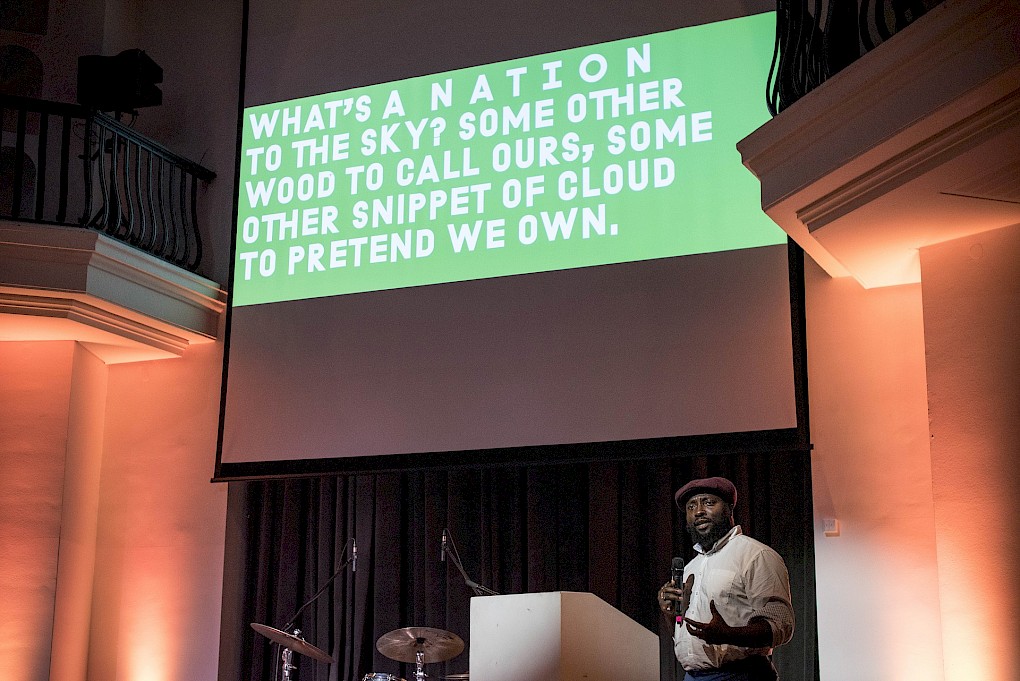
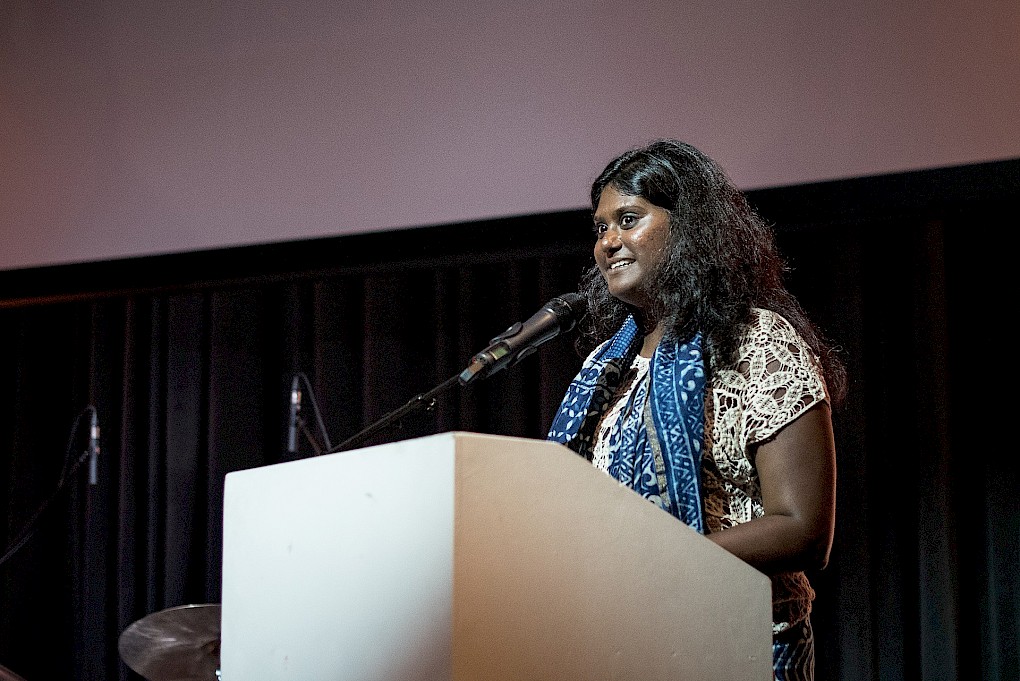
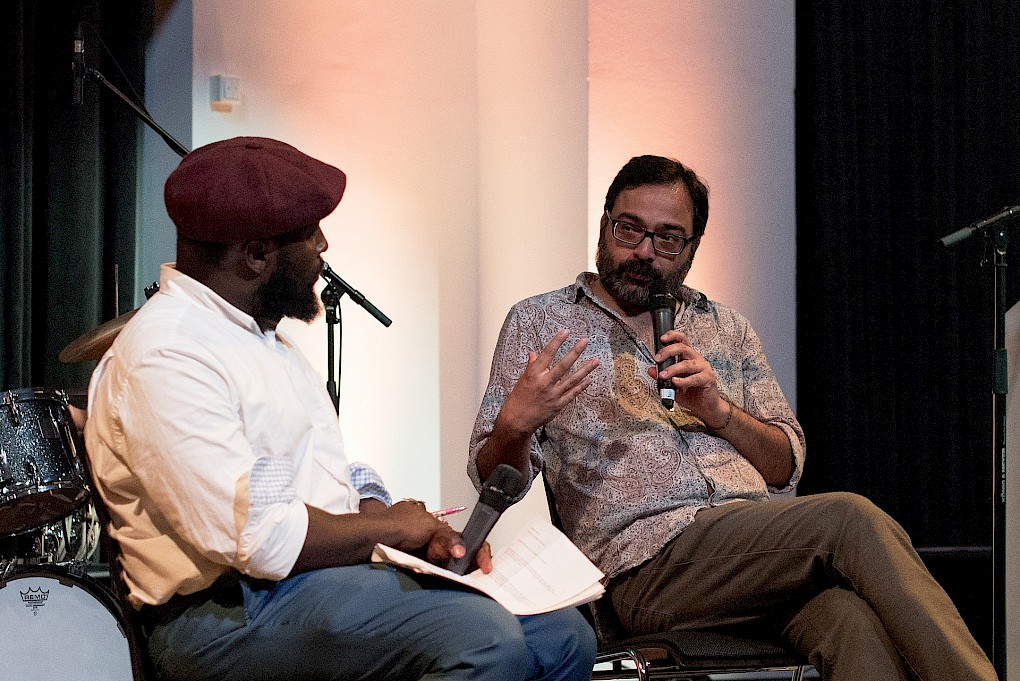
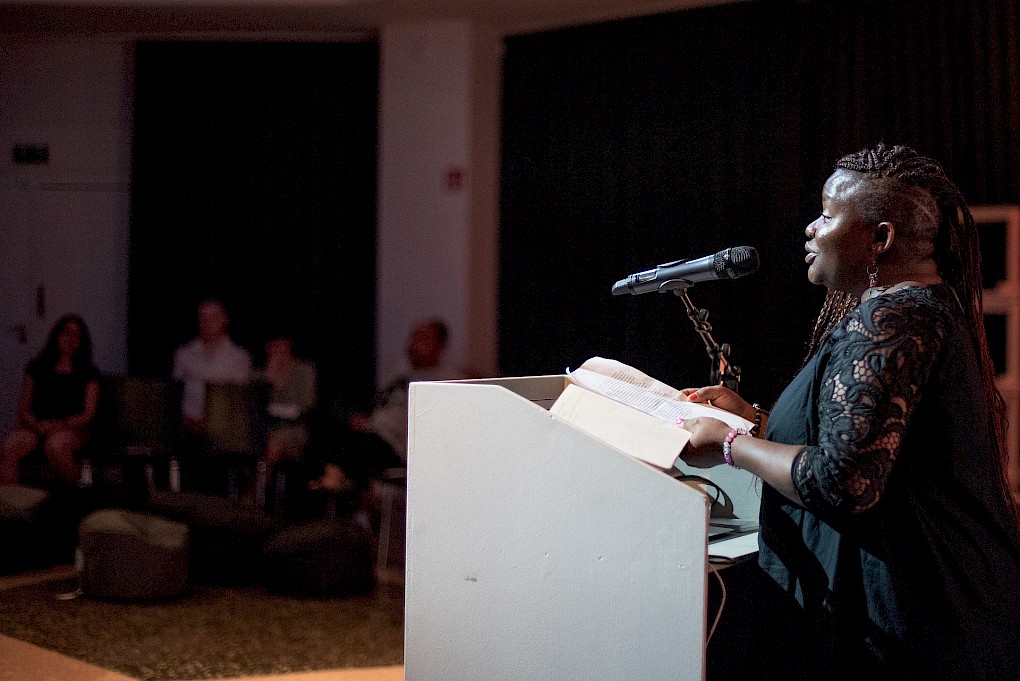
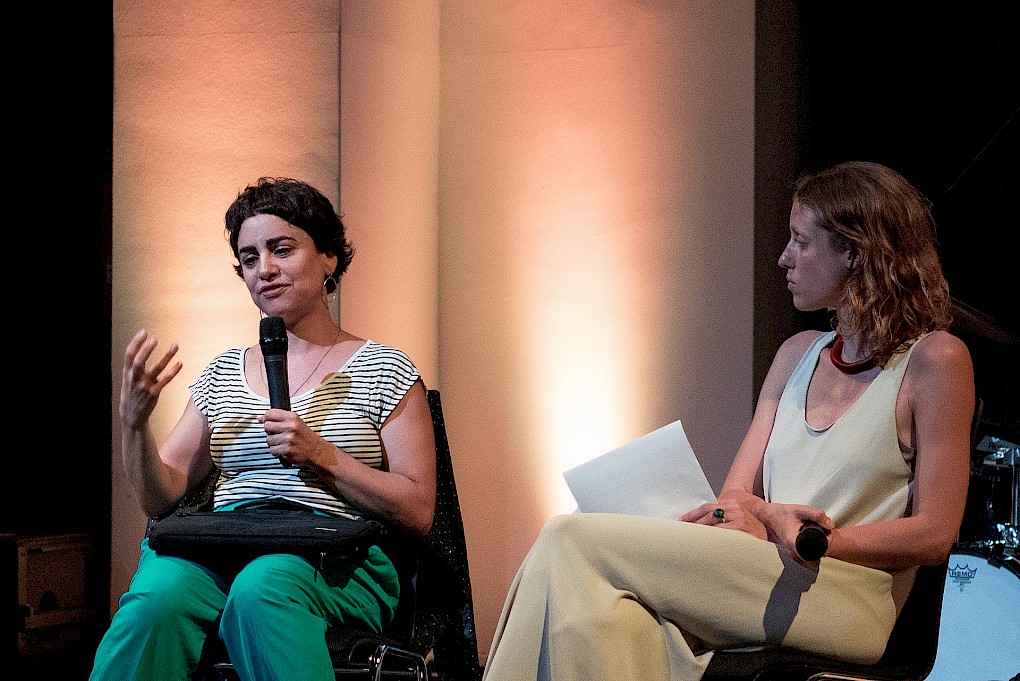
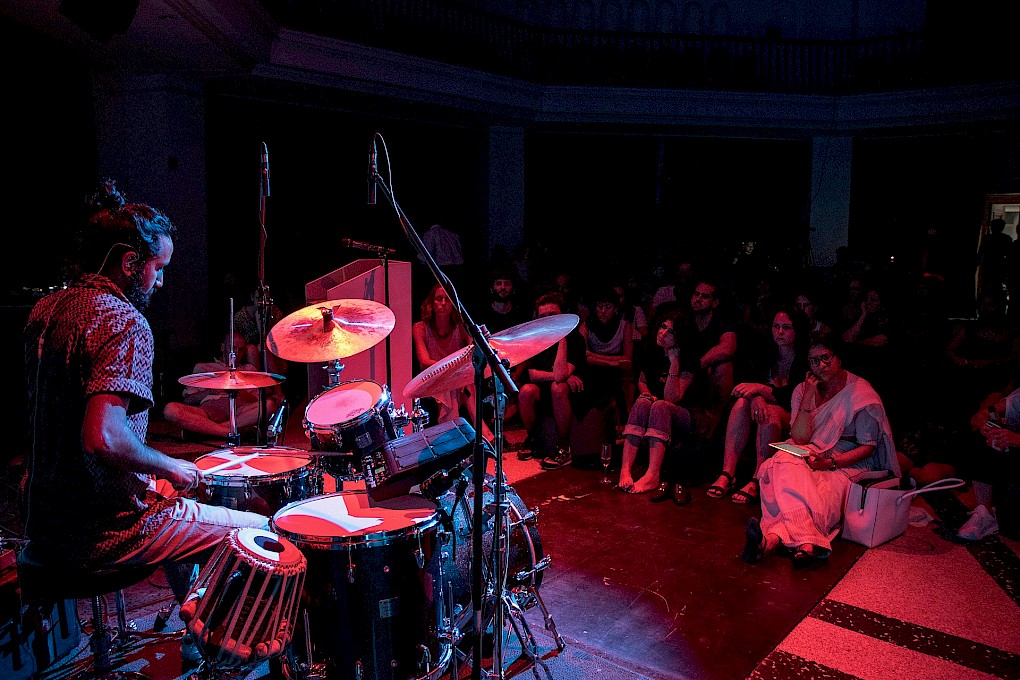
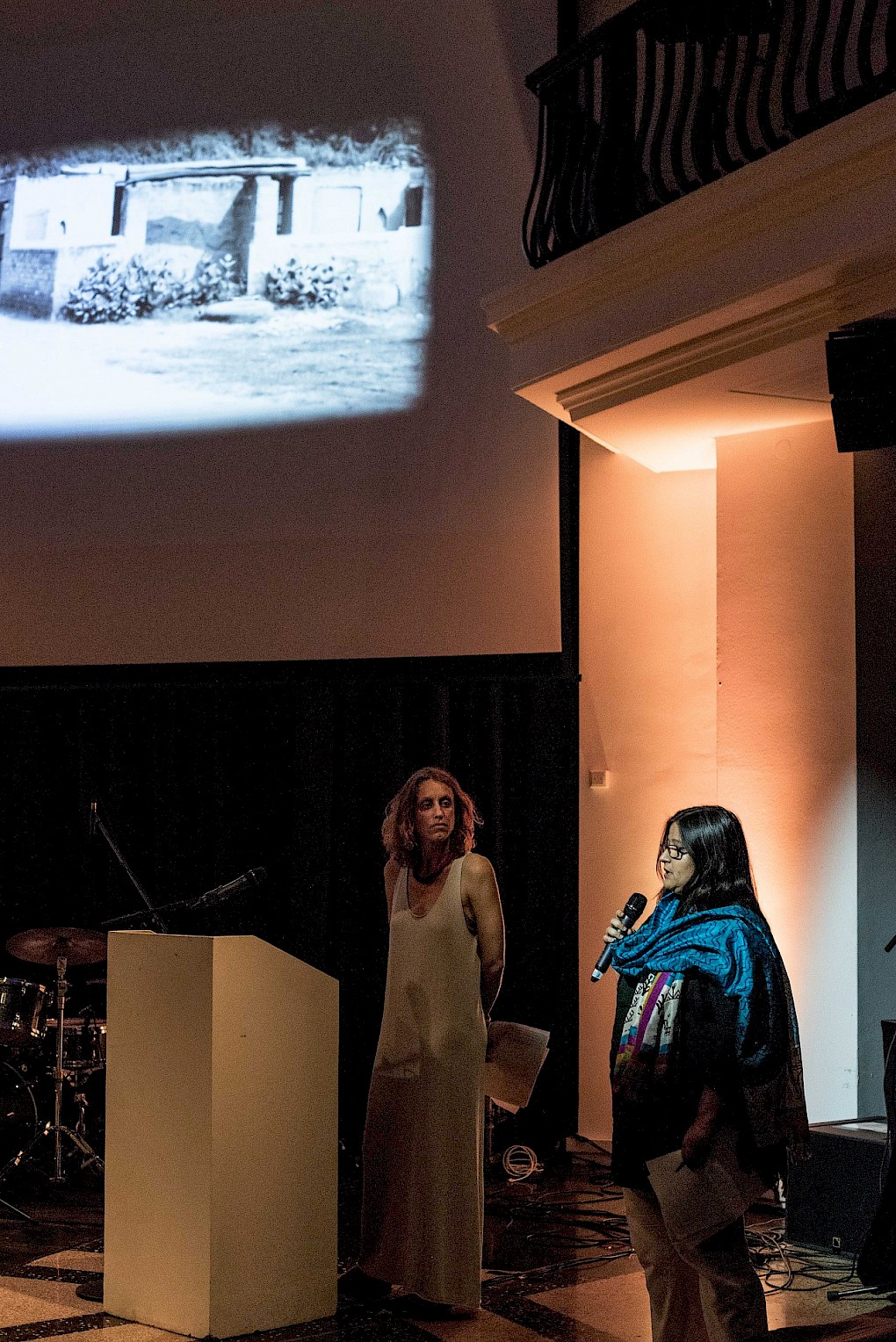
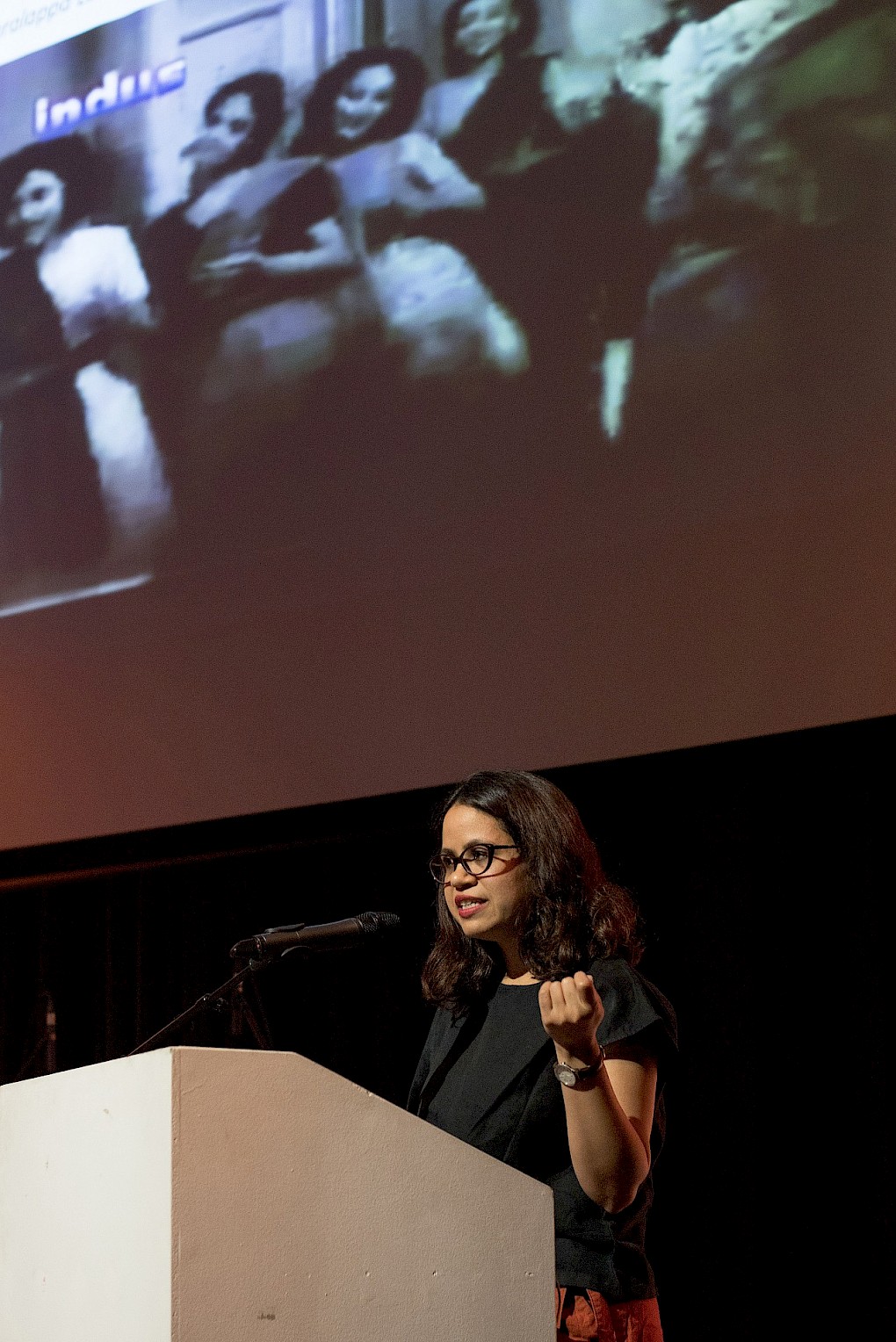
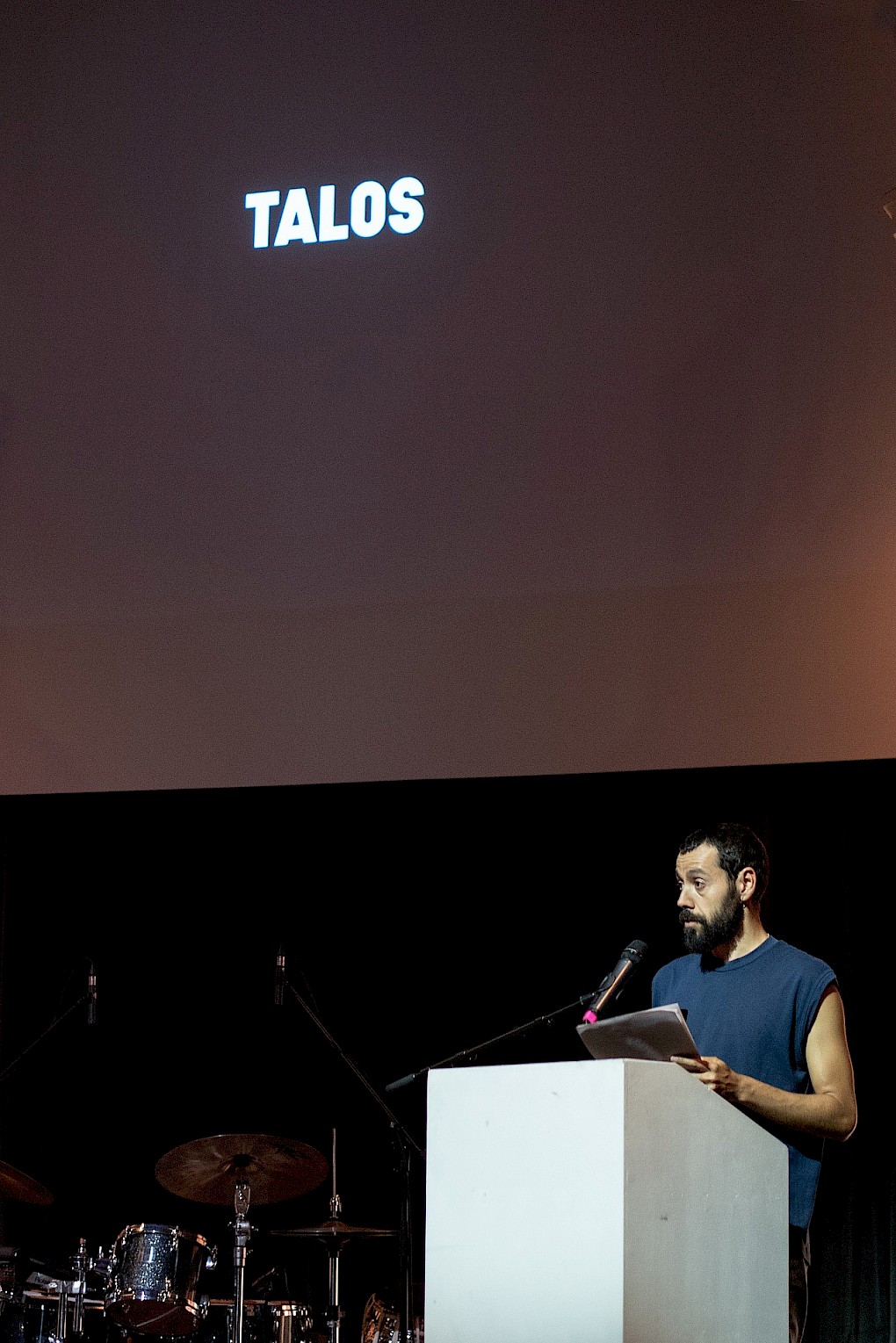
It takes a lot of work to remember we are nothing.
What has history given us but a fickle home? A legacy
of bloodied men. What´s a nation to the sky? Some other wood
to call ours, some other snippet of cloud to pretend we own.
We are all Godspeed, but no more or less
so than any other aspect of the universe,
Godspeed is all there is - all that
Changes. Earthed is all that spreads
Earth life to new earths. The universe is
Godspeed. Only we are Earthseed. And the
destiny of Earthseed is to take root among
the stars
This long night of pondering on Partition and Partitura takes as its starting point the partition between Pakistan and India, which led to East and West Pakistan´s independence from colonial Britain, when approximately 14 million people were forced into migration, flying ethnic cleansing, rape, mass murder. This historical event remains one of the largest forced migrations in human history. The making of partitions that lead or respond to migration, of dividing or being divided, of borders, walls, frontiers, fences, gates, barriers, whether physical or immaterial, crosses cultures, times and geographies. From the old Greek myth of Talos – as narrated by Apollonius of Rhodes – an almost invulnerable bronze giant sent by Zeus to Crete to protect Europa by walking throughout the coast of the island, we move on to the European Union´s project Talos – a suggested way to use autonomous robotic vehicles to strengthen the security of land borders. However, despite new technological systems of monitoring and control being put in place, new physical walls keep being constructed or enforced: from the border between Syria and Turkey – under European pressure – to the reinforced rows of walls and fences along the border between the US and Mexico, to name a few.
In many places of the world, brothers and sisters are killing each other because of perceived or constructed differences, basic human rights are denied to the majority of the world population, leaving people to die in the sea, others are starving, imprisoned or homeless. The devastating future Octavia Butler had imagined in The Parable of the Sower, where small privileged, walled communities protect themselves from a world in which poverty has brought only violence and destruction doesn't seem to be a product of the imagination but finds numerous equivalents in our present and past.
While we want to take a moment to focus on what it is that drives the political impulse to divide and rule, we also want to think about what other present we could imagine if we turned partitions on their heads. What if partitions, these ongoing redistributions of parts, just remained as the etymologies of other words, of partitas (from the Italian partitura) to just exist instead as musical scores, spaces of sounds, transnational sounds, sounds that have forgotten and overcome nations, that unfurl in porous interstices? Can partitions become conjunctions, and those become alignments? If a partition becomes a partitura, can it also just exist as a polyphony? For this Long Night, we invite poets, story-tellers, scholars, singers, musicians and filmmakers to respond to these reflections.
The title is inspired by Fatima Asghar’s poem "Pluto Shits on the Universe” (in: If They Come for Us, 2018).
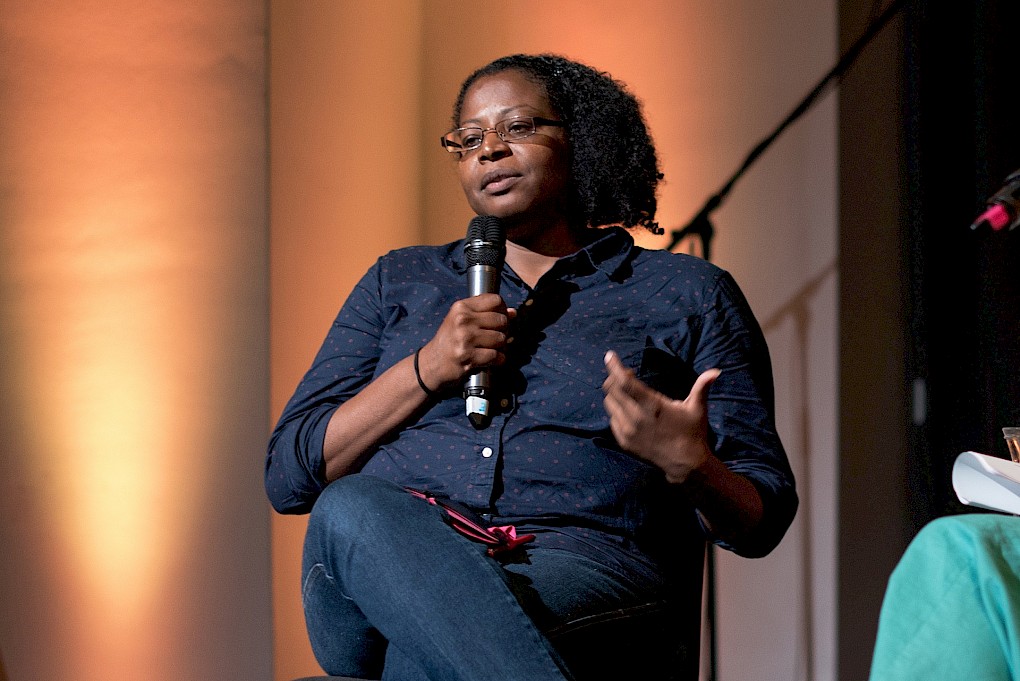
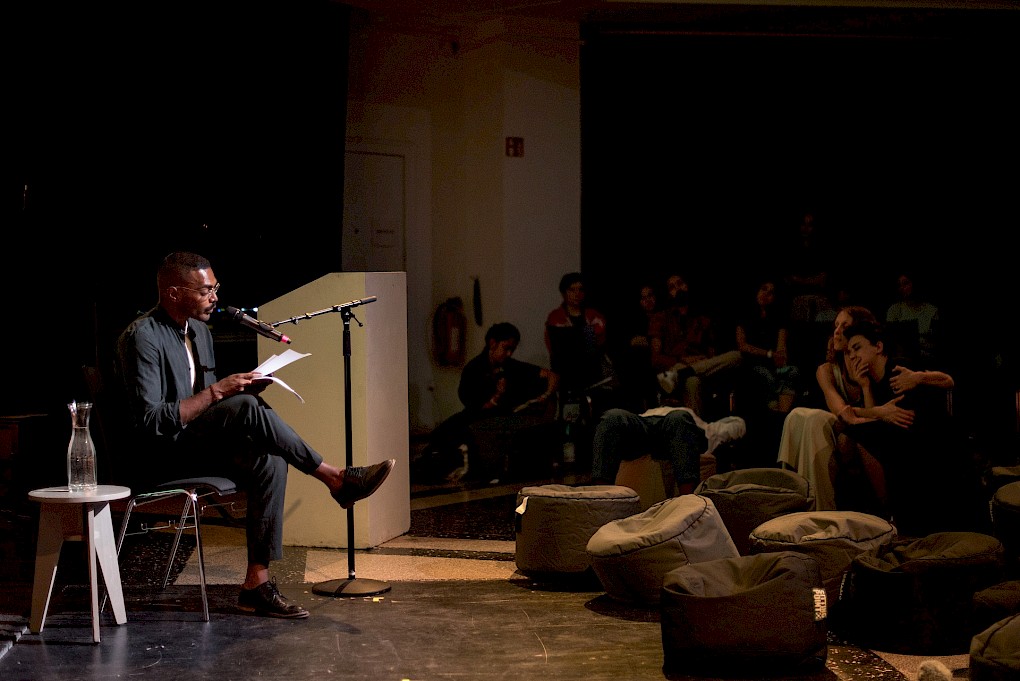
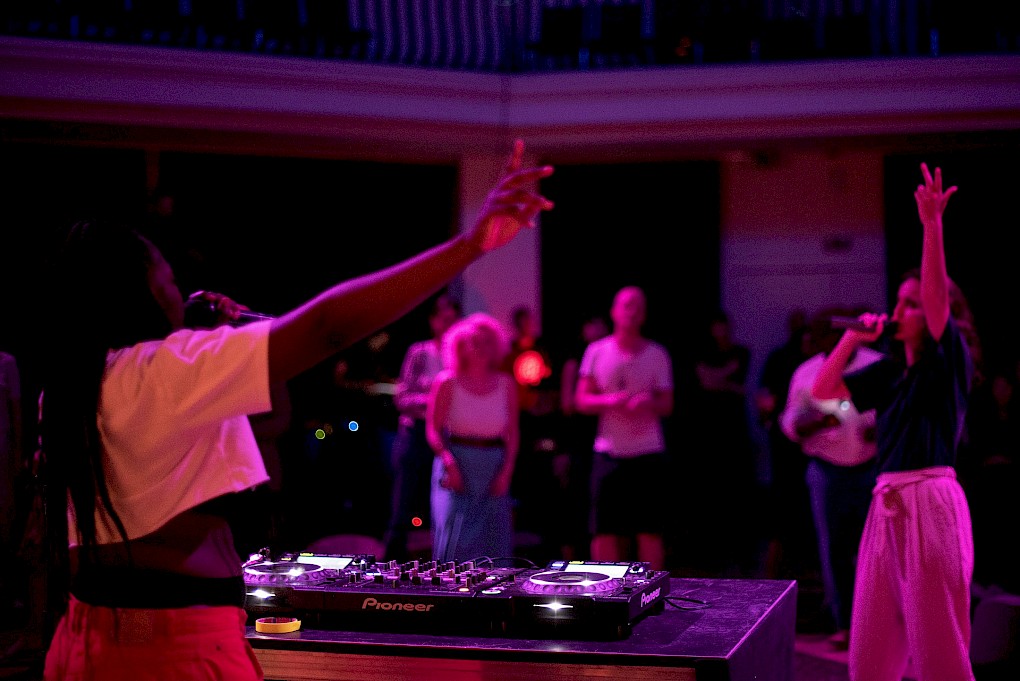

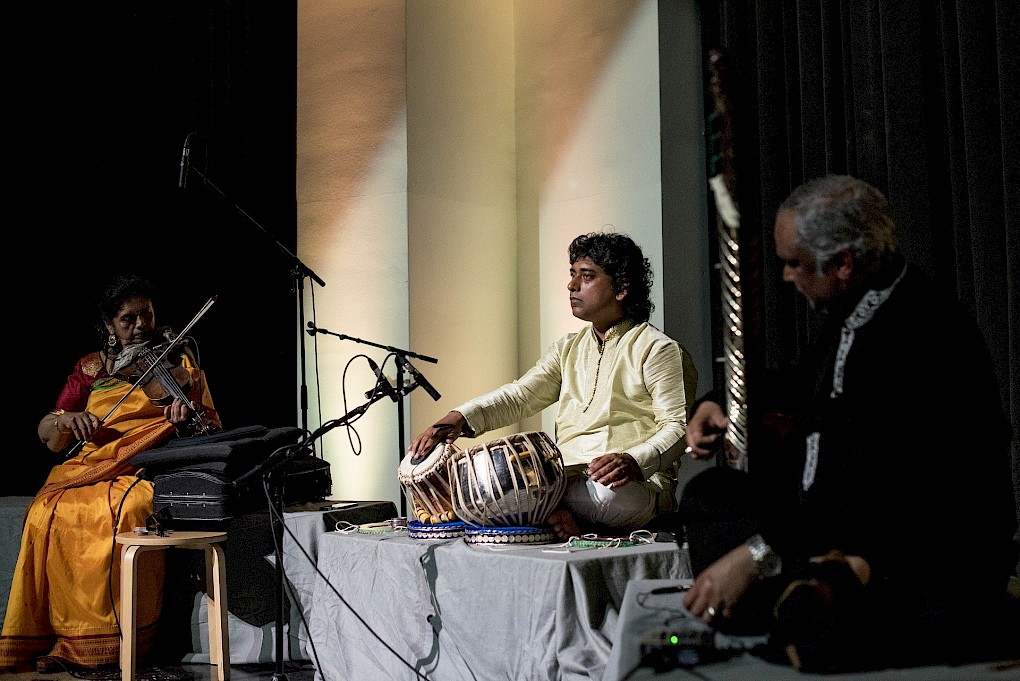
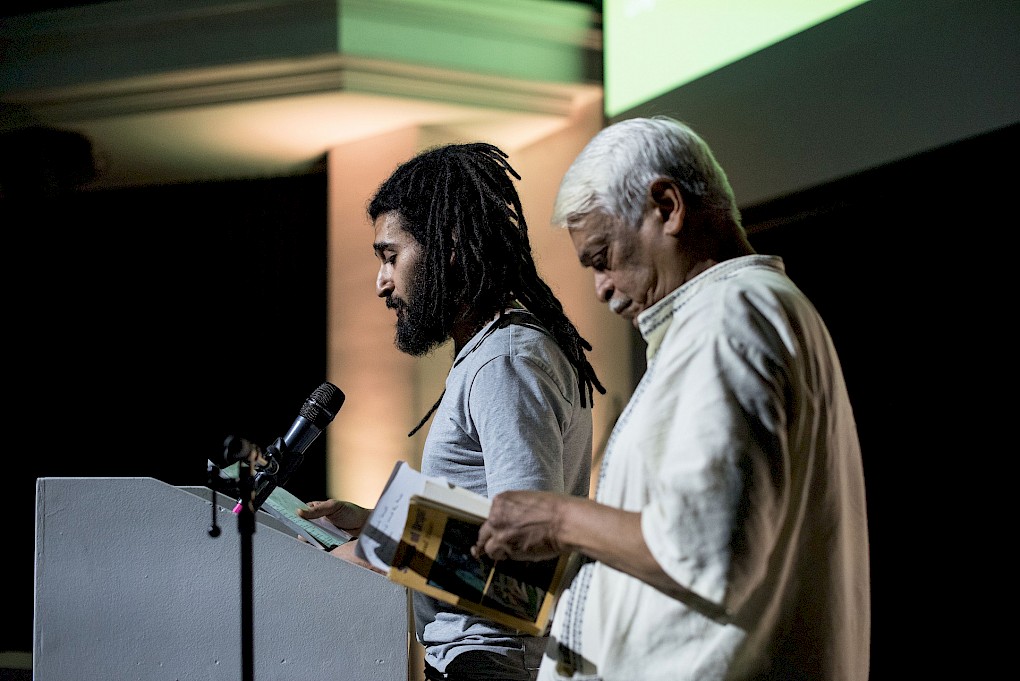
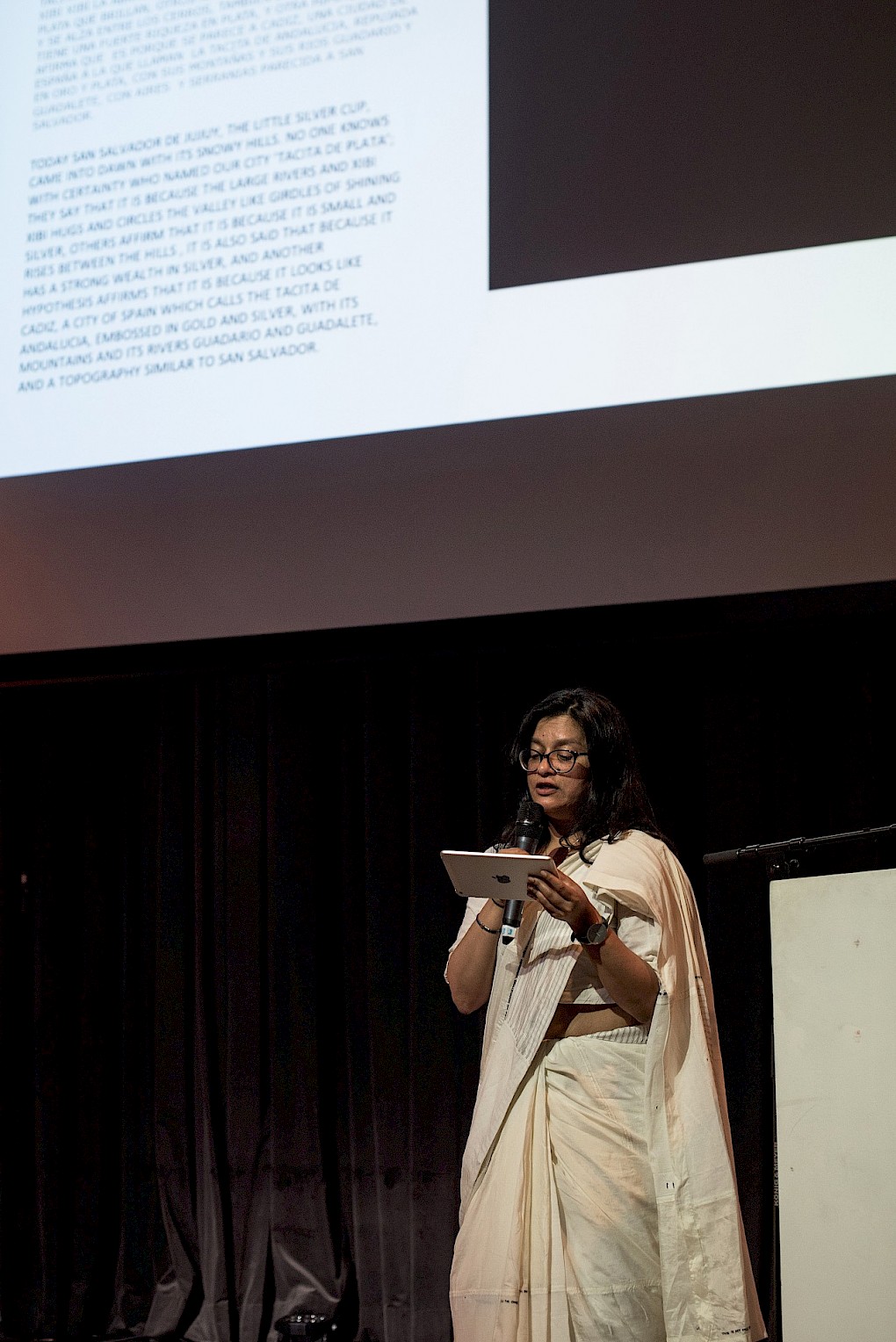
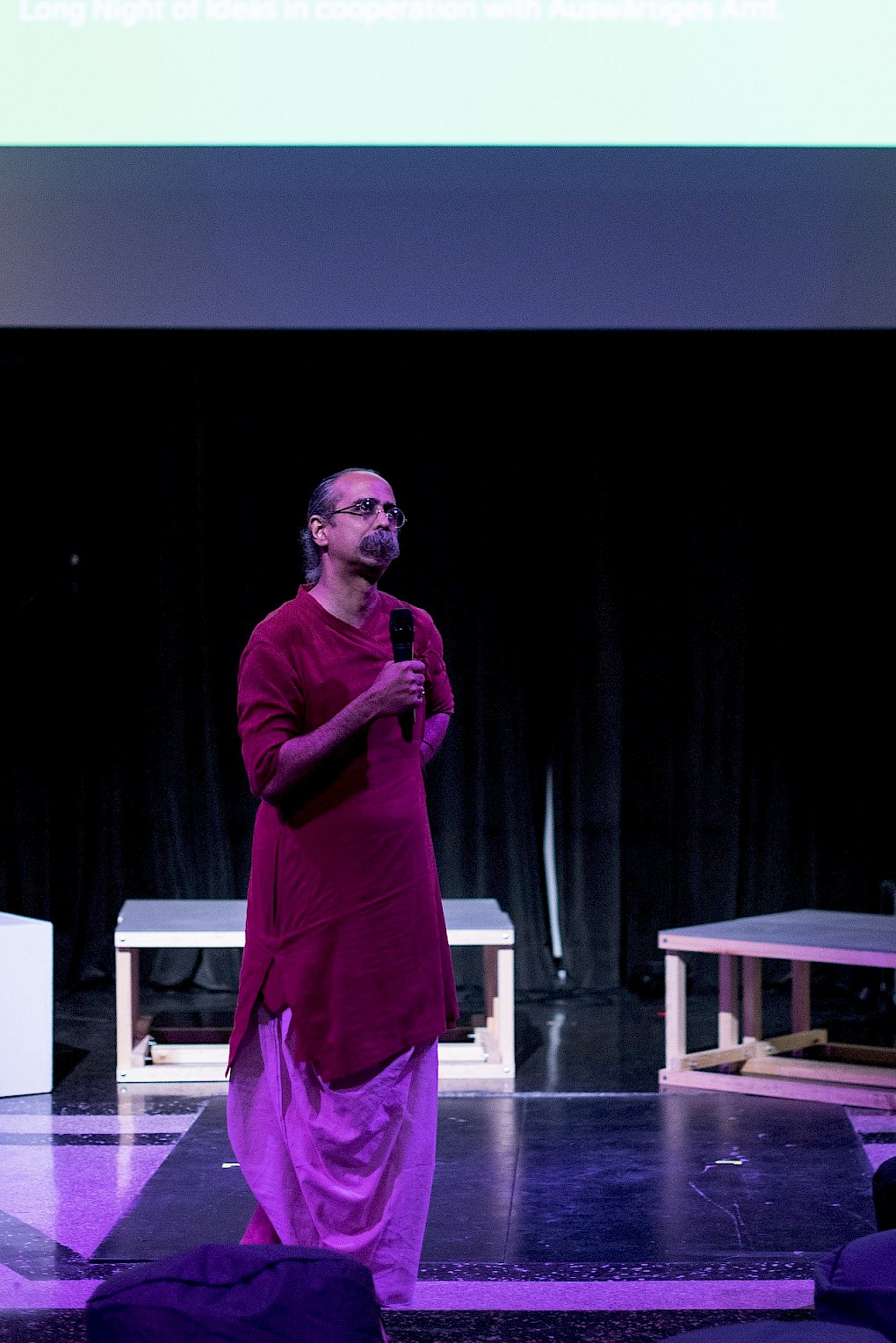
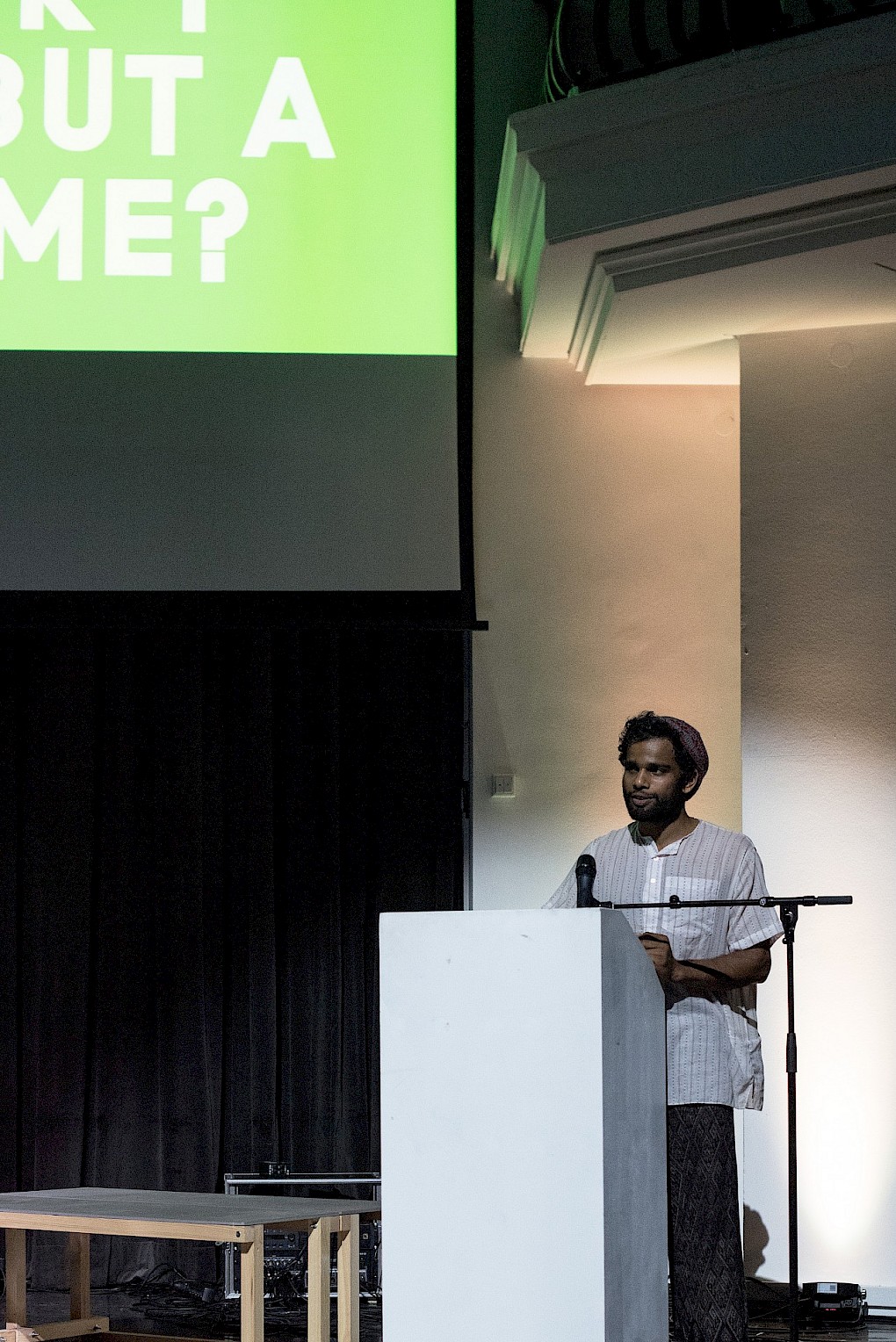
The events take place in the context of the Long Night of Ideas in cooperation with Auswärtiges Amt: www.menschenbewegen.jetzt

